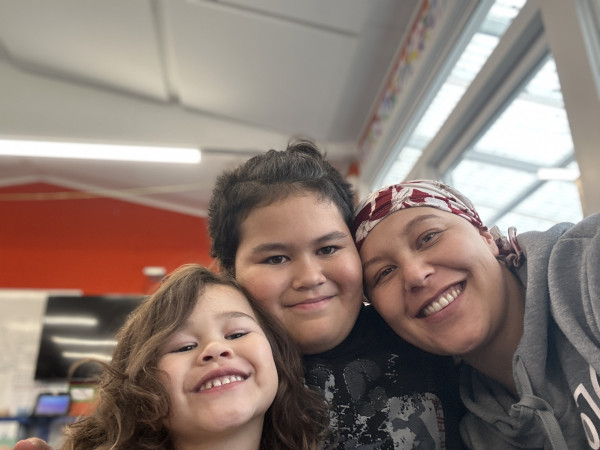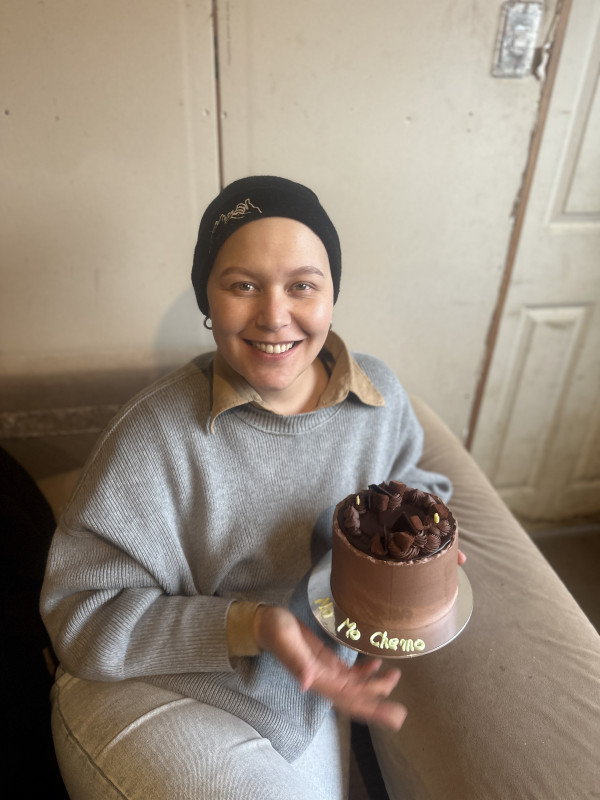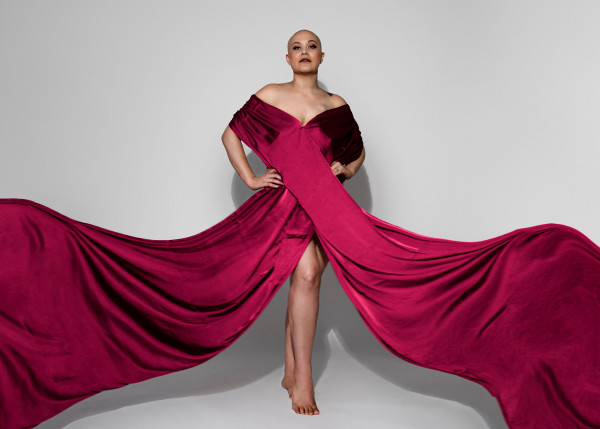Breast cancer was never on Jaydene Dixon-Komene’s mind.
As a fit and healthy 27-year-old she thought it was just an “old lady's disease”. But then she found a lump.
“My sister and I were in the gym and I just started to feel tired but I thought nothing of it, just thought sweet, we’re smashing it at the gym,” the mum-of-two from Ōkaihau, Northland says.
“And then there was a lump… the lump got bigger and looking back I had pain in my armpit but I didn’t link it with breast cancer.”
Breast cancer is a disease in which abnormal breast cells grow out of control and form tumours. If left unchecked, the tumours can spread throughout the body.
Mum-of-two Jaydene Dixon-Komene was diagnosed with breast cancer at just 27. Photo: Supplied.
Early detection saves lives
Jaydene’s sister had a lump so they decided they would get checked together.
Her sister’s turned out to be nothing but Jaydene’s lump turned her world upside down.
“On the 28th of March I was diagnosed with stage 2 breast cancer and went through 16 rounds of chemotherapy, had a single mastectomy and lymph nodes removed, three months of healing and then 15 rounds of radiation.”
Jaydene (Ngāti Porou) says early detection saved her life.
Breast Cancer Foundation NZ stats shows breast cancers at stage 1 or 2 have a 92% survival rate.
The research also shows late stage diagnoses account for 15% of all breast cancer cases which is around 525 women every year. This number hasn’t changed for the past 10 years.

Jaydene has two young kids who she promised she would fight cancer and win. Photo: Supplied.
What to tell the kids
With two little kids at home now 9 and 5, Jaydene and her husband had to try and explain to them what was going on.
She says they were honest with the kids from the start.
“Right at the start we sat them down and told them ‘Mum is going to get really sick’ but I told them ‘I’m going to fight this and I’m going to win’.
“We’d go down to the treatment centre and wouldn’ be back until 4 so had to put my son into after school care and getting there and seeing the fear in his eyes of ‘Mum, I thought something had happened’ that was really hard. But kids are so resilient.”
Because she was so young Jaydene never expected to have breast cancer in her 20s and neither did the staff at the cancer centre, she says.
“It was like what are you doing here?
“It doesn’t matter who you are, breast cancer doesn’t discriminate.”

After nine months of treatment, Jaydene is cancer free. Photo: Supplied.
Looking to the future
Now, after nine months of treatment and stress, Jaydene is proudly cancer free and slowly coming to terms with what she’s been through.
Going forward she’s on medication to put her into chemically-induced menopause and to keep her there.
She’s also looking to get her other breast removed after a scare last month.
“I’m slowly just trying to find who I am again. It puts life into perspective.”
Jaydene is now spreading the word for Breast Cancer Awareness Month this October.
She says hers was an obvious lump. Similar to fatty tissue in her breast but was hard.
“At the start there was no pain but then it started to get a little bit sore.
“The biggest clue was the pain in my armpit, which were swollen lymph nodes.”
A new survey by Breast Cancer Foundation NZ and market research company Ipsos shows the majority (92%) of people surveyed know they should check their breasts but in reality more than half (57%) forget to do so.
The survey also showed that 80% knew the normal look and feel of their breasts and 79% say they know what to do if they notice a change.
But 43% of people surveyed haven’t looked at their breasts in the mirror and 40% haven’t felt their breasts to check for changes in the last six months.

Jaydene says breast cancer has changed her as a person and given her a whole new perspective on life. Photo: Kirsty Joy Creative.
Listen to your body
Jaydene wants people, no matter their age, to be checking themselves regularly.
Know your normal and feel on the first of every month, she says.
“Breast cancer has changed my mindset, the way I look at myself, I know I’m not a hypochondriac.
“Your body whispers before it screams, don’t let pride keep you from listening when it matters the most.”
Ah-Leen Rayner, chief executive of Breast Cancer Foundation NZ, says you have excellent odds of surviving breast cancer if it’s detected early, however too many people are getting their diagnosis too late.
“Our new survey suggests while there may be high awareness about breast health amongst New Zealanders, the challenge is empowering and normalising action.
“Making this part of your routine is the ultimate act of self-care – it’s what could save your life.”
More stories:
I found out I had breast cancer at 25
Stacey Managh was at home on a Saturday night, attempting to pop a pimple on her chest, when she realised there was a lump in her breast.
These women share their breast cancer journey
“I think there’s a misconception that young women don’t get breast cancer and that’s just simply not true.”
In photos: What young Indian NZers wore to garba this year
Garba is a social dance during Navaratri, a Hindu festival that honours the divine feminine.